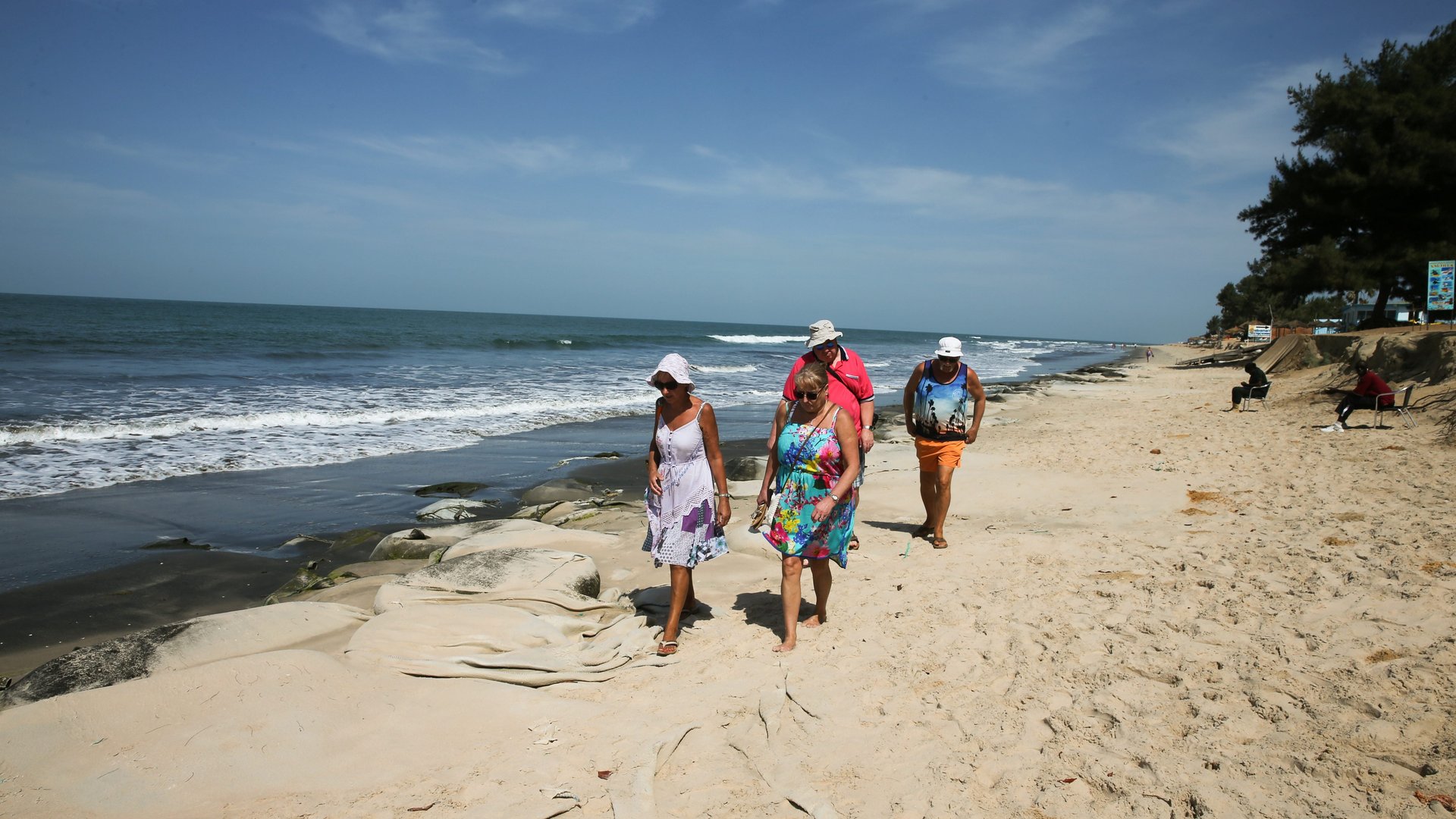The collapse of UK travel giant Thomas Cook will devastate this African country’s tourism sector
The collapse of British travel operator Thomas Cook last week couldn’t have come at a worse time for the small West African nation of The Gambia. The unraveling of the 187-year old company has come at the height of Gambia’s tourism season which usually kicks off in October with a majority of tourists coming from Europe on package holidays like the ones that used to be operated by Thomas Cook.


The collapse of British travel operator Thomas Cook last week couldn’t have come at a worse time for the small West African nation of The Gambia. The unraveling of the 187-year old company has come at the height of Gambia’s tourism season which usually kicks off in October with a majority of tourists coming from Europe on package holidays like the ones that used to be operated by Thomas Cook.
In the winter months, hotel occupancy reaches 90% in The Gambia and Thomas Cook alone was responsible for bringing in 45% of all tourists.
The travel operator officially collapsed on Sept. 23 after banks and the British government refused its request for a bailout. The public had some warning: in May the company posted a £1.5 billion ($1.8 billion) loss for the first half of 2019.
The UK government is now working frantically to repatriate more than 150,000 citizens back from their holiday destinations in a plan codenamed ‘Operation Matterhorn.’ On Mon., Sept. 30, the UK Civil Aviation Authority said it had successfully brought back 106,000 people. Other European governments were trying to do something too: there were reportedly more Germans vacationers than British stranded around the world in warm, sunny climes no longer enjoying the weather as there was no certainty how they’d get back.
The Gambian government is watching developments keenly as it assesses the damage the collapse of Thomas Cook will have on its economy, hotels, local tour operators, allied businesses and workers. The collapse will have an impact on both direct and indirect revenue from tourism.
The government confirmed it receives up to 30% of its tourists from the UK. “Although the Airline only operates in The Gambia during the Winter Season (6 months), it has contributed significantly in addressing our air access challenge and accounts for a staggering 45% of tourists visiting the Destination during the tourism season,” said a government spokesperson in a statement. The tourism ministry had “convened an emergency meeting” with all stakeholders including the IMF, the European Union, the World Bank and the finance ministry to devise a strategic response.
“The season hasn’t started yet but the fact that Thomas Cook brings the largest number of tourists to the Gambia, well, it is a cause for concern for us. And so many people [who have] booked through Thomas Cook have canceled and some of them [have not] rebooked through other companies,” said a Gambian tour operator who asked not to be named as he did not have permission to speak on behalf of his employer.
Despite their importance to the local industry, the largest share of profit from The Gambia’s tourism industry ends up with international tour operators like Thomas Cook.
“Most of the 162,000 tourists who visited mainland Africa’s smallest country in 2017 were Europeans who booked trips with tour operators, meaning much of the money didn’t end up in the pockets of Gambians,” the UN says.
However, The Gambia, which has a GDP of just $1.6 billion, really needs tourists. Tourism is its single largest foreign exchange earner, accounting for more than 20% of GDP.
Even under the heavy-handed rule of former dictator Yahya Jammeh, international visitors thronged to the small West African country which is enveloped by Senegal. Despite lacking major national parks compared to its neighbors, Gambia offers pristine sandy beaches on its Atlantic Coast and on River Gambia which serpentines the country and handmade arts and crafts.
However, the West Africa Ebola outbreak 2014-2016 that occurred in neighboring countries and the political impasse that followed the ouster of Jammeh affected tourist arrivals, according to its central bank [pdf, p.48]. But in 2018, the sector made a significant rebound for the Gambia with visitors filling its hotels once again. “The number of tourists touched a record high and increased by 26% in 2018 compared to 2017,” according to the World Bank.
Sign up to the Quartz Africa Weekly Brief here for news and analysis on African business, tech and innovation in your inbox